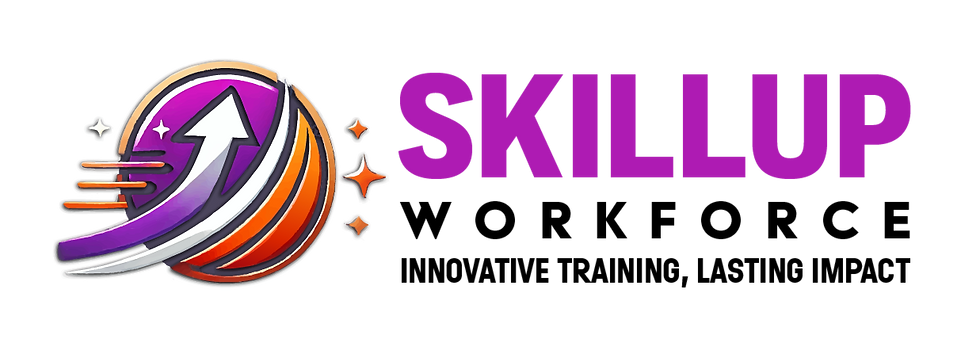The Hidden Strengths You Already Have: How to Spot Your Transferable Skills
- SkillUp Workforce, LLC
- Jul 31
- 3 min read

Think you don’t have the “right” experience for the job you want? Think again.
We meet so many individuals who believe they’re underqualified—when in reality, they’re overlooking their transferable skills: the abilities they’ve built over time in everyday life, past roles, and even non-traditional experiences.
Whether you're pivoting careers, returning to the workforce, or simply exploring your next move, your hidden strengths might be more valuable than you think.
Let’s break it down.
What Are Transferable Skills?
Transferable skills are abilities you’ve developed that can apply across different jobs, industries, and roles. These aren’t tied to a specific task or job title—they’re versatile, people-powered, and problem-solving skills that move with you.
Common examples include:
Communication
Time management
Problem-solving
Organization
Leadership
Customer service
Adaptability
Teamwork
These skills are in high demand—and they often matter more than you realize.
Where Do Transferable Skills Come From?
You don’t need to work a traditional 9–5 role to build valuable skills. Many people develop highly transferable abilities through freelance work, part-time jobs, volunteer efforts, community leadership, or side hustles—experiences that often involve real responsibility, adaptability, and creativity.
Here are a few real-life examples:
Customer Service or Retail Work
Managing complaints with professionalism
Time management and multitasking
Team collaboration
Upselling or persuasive communication
Handling pressure and difficult customers
You may have been “just” a cashier—but you’ve likely developed communication, problem-solving, and emotional intelligence.
Freelancing or Side Hustles
Project management and client coordination
Self-discipline and deadline tracking
Marketing, branding, and self-promotion
Financial organization and budgeting
Adapting to multiple roles and expectations
Freelancers wear many hats—skills like adaptability, self-direction, and communication are built into the work.
Volunteering and Community Involvement
Organizing events and logistics
Leading teams or groups
Public speaking and presentations
Fundraising or outreach
Building relationships with diverse audiences
If you’ve helped run a community event or led a team of volunteers, you’ve already practiced leadership, collaboration, and strategic thinking.
How to Identify Your Transferable Skills
Reflect on Past Experiences
Think about any setting—paid or unpaid—where you solved problems, worked with people, or managed responsibilities. Ask yourself:
What tasks do I consistently take ownership of?
Where have I received positive feedback?
What challenges have I helped resolve?
Ask Others What They See in You
Sometimes our strengths are easier for others to recognize. Ask a trusted friend, colleague, or mentor:
“What do you think I’m naturally good at?”
“Where do you see me adding the most value in a team setting?”
How to Use Transferable Skills in Your Job Search
Once you’ve identified your transferable skills, it’s time to communicate them clearly and confidently.
On Your Resume:
Use language that highlights how your experience translates to the role:
“Led community outreach for local nonprofit” → shows initiative, relationship-building, and leadership
“Managed multiple freelance clients and deadlines” → highlights project management and time management
In Interviews:
Use the STAR method (Situation, Task, Action, Result) to tell real stories:
Describe how you’ve handled challenges, collaborated with others, or delivered results
Emphasize how your skills apply to the new environment—even if it’s in a different industry
How SkillUp Workforce Can Help
At SkillUp Workforce, LLC, we support individuals at all stages of their career journeys by helping them:
Uncover their unique, real-world strengths
Create resumes and LinkedIn profiles that speak clearly to employers
Prepare for interviews using effective communication strategies
Build confidence in marketing their experience—no matter where it comes from
You already have more to offer than you think. Your experiences—whether on the job, in your community, or through side projects—have given you real, marketable skills.
Once you learn how to identify and express them, you'll stop second-guessing your value—and start moving toward your goals with purpose.
👉 Need help discovering and marketing your transferable skills?
Let SkillUp Workforce guide you through the process with expert coaching and practical tools.




Comments